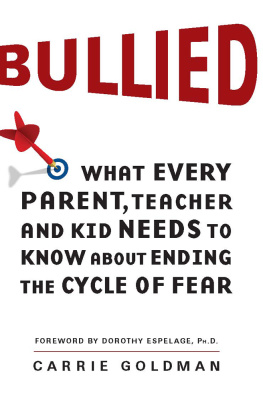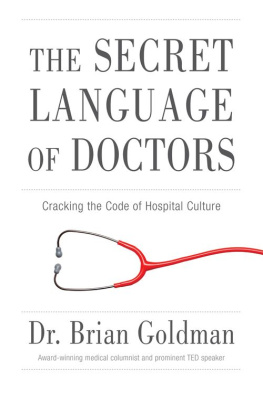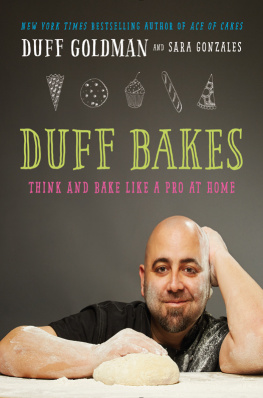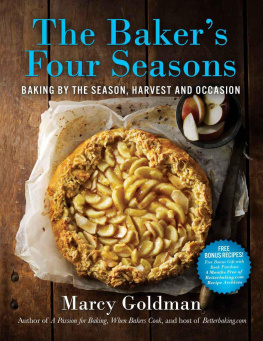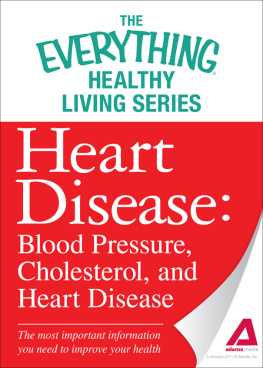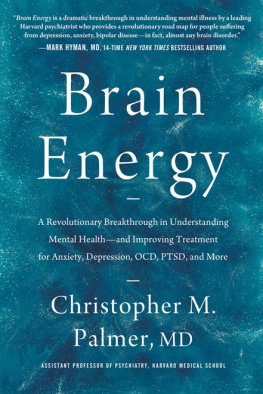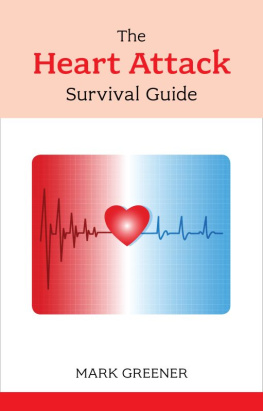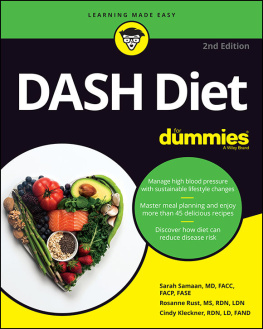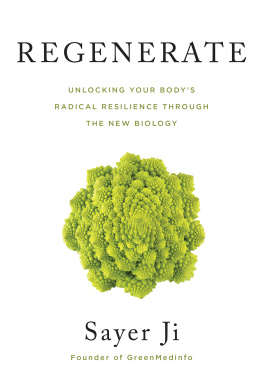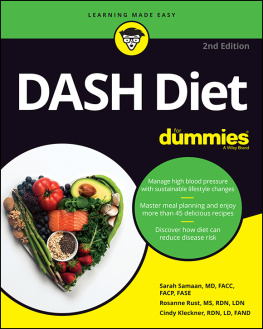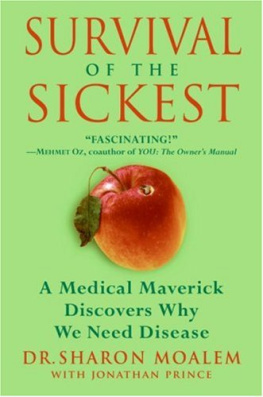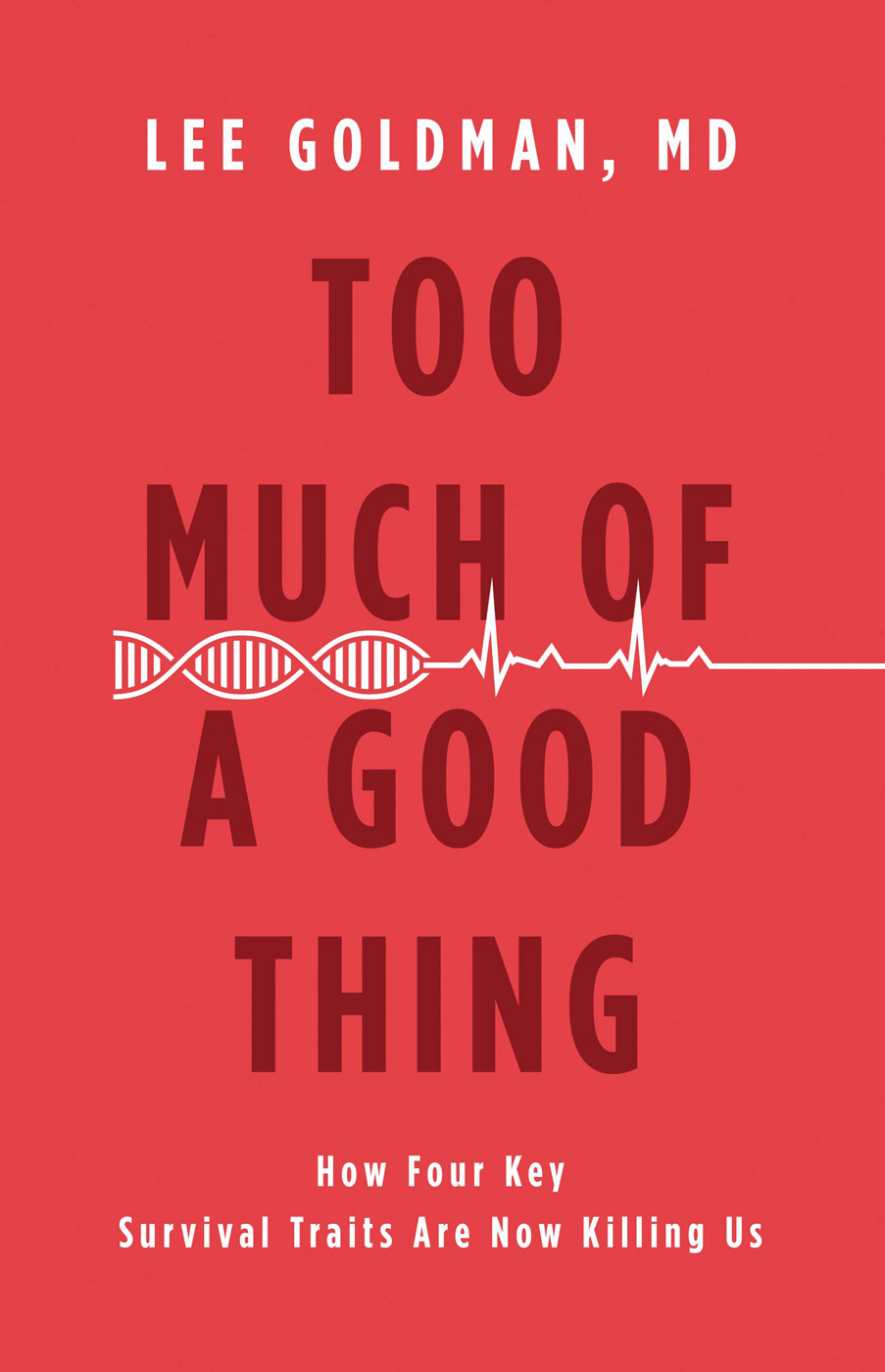Thank you for buying this ebook, published by HachetteDigital.
To receive special offers, bonus content, and news about ourlatest ebooks and apps, sign up for our newsletters.
This book is intended to supplement, not replace, the advice of a trained health professional. If you know or suspect that you have a health problem, you should consult a health professional. The author and publisher specifically disclaim any liability, loss, or risk, personal or otherwise, which is incurred as a consequence, directly or indirectly, of the use and application of any of the contents of this book.
Copyright 2015 by Lee Goldman
Cover design by Jason Gabbert
Cover copyright 2015 by Hachette Book Group, Inc.
All rights reserved. In accordance with the U.S. Copyright Act of 1976, the scanning, uploading, and electronic sharing of any part of this book without the permission of the publisher constitute unlawful piracy and theft of the authors intellectual property. If you would like to use material from the book (other than for review purposes), prior written permission must be obtained by contacting the publisher at permissions@hbgusa.com. Thank you for your support of the authors rights.
Little, Brown and Company
Hachette Book Group
1290 Avenue of the Americas, New York, NY 10104
littlebrown.com
twitter.com/littlebrown
facebook.com/littlebrownandcompany
First ebook edition: December 2015
Little, Brown and Company is a division of Hachette Book Group, Inc. The Little, Brown name and logo are trademarks of Hachette Book Group, Inc.
The Hachette Speakers Bureau provides a wide range of authors for speaking events. To find out more, go to www.hachettespeakersbureau.com or call (866) 376-6591.
The publisher is not responsible for websites (or their content) that are not owned by the publisher.
ISBN 978-0-316-23680-5
E3
For Jill
E ver since I began practicing medicine, my family and friends have inevitably asked me about real and perceived health problems. Common questions always include: Why is it so hard for me to lose weight? Do I really need to take my blood pressure medicine even if I feel okay? Should I take an aspirin every day?
In thinking about these questions and others, I began to appreciate what seems to be a peculiar conundrum. Some of the key protective strategies our bodies have used to assure the survival of our human species for tens of thousands of years now cause many of the major diseases of modern industrialized societies.
In writing this book, my first goal is to emphasize the historical fragility of the human species and why we wouldnt be here today, let alone dominate the world, if it were not for fundamental survival traits such as hunger, thirst, fear, and our bloods ability to clot. My second goal is to explain why these hardwired survival traits are often now too goodnot only more powerful than we need them to be to survive in the modern world but also so strong that, paradoxically, theyve become major causes of human disease and death. My third and perhaps most important goal is to explain how the future may play out, including how we can continue to use our brains to influence that outcome.
Too Much of a Good Thing focuses on the four key human survival traits, without which we wouldnt be here today:
Appetite and the imperative for calories. Early humans avoided starvation by being able to gorge themselves whenever food was available. Now that same tendency to eat more than our bodies really need explains why 35 percent of Americans are obese and have an increased risk of developing diabetes, heart disease, and even cancer.
Our need for water and salt. Our ancestors continually faced the possibility of fatal dehydration, especially if they exercised and sweated, so their bodies had to crave and conserve both water and salt. Today, many Americans consume far more salt than they need, and this excess salt combined with the same internal hormones that conserve salt and water are the reasons why 30 percent of us have high blood pressuresignificantly increasing our risks of heart disease, stroke, and kidney failure.
Knowing when to fight, when to flee, and when to be submissive. In prehistoric societies, up to 25 percent of deaths were caused by violence, so it was critical to be hypervigilant, always worrying about potentially getting killed. But as the world got safer, violence declined. Suicide is now much more common in the United States than murder and fatal animal attacks. Why? Our hypervigilance, fears, and worrying contribute to a growing epidemic of anxiety, depression, and post-traumatic stressand the suicides that can result.
The ability to form blood clots so we wont bleed to death. Because of their considerable risk of bleeding from trauma and childbirth, early humans needed to be able to clot quickly and efficiently. Now, with the advent of everything from bandages to blood transfusions, blood clots are more likely to kill us than excessive bleeding. Most heart attacks and strokesthe leading causes of death in todays societyare a direct result of blood clots that block the flow of arterial blood to our hearts and brains. And long car rides and plane trips, unknown to our distant ancestors, can cause dangerous and sometimes fatal clots in our veins.
Well into the nineteenth century, each of these four traits specifically helped our ancestors survive as they tried to avoid starvation, dehydration, violence, and bleedingwhich have been among the leading causes of death throughout human history. But now, amazingly, these same four traits collectively explain more than 40 percent of deaths in the United States, including four of the eight leading causes of mortality, and are directly responsible for more than six times the number of deaths they prevent. How could the very same attributes that helped humans not only survive but also dominate the earth now be so counterproductive?
This paradox is the essence of Too Much of a Good Thing. For more than 200,000 years and perhaps 10,000 generations, the world of our ancestors changed very gradually. Our genes, which define who we are, also evolved more or less on a parallel path, so our ancestors could adapt and thrive. Then, barely 200 years ago, human brainpower began to change our world dramatically, as the Industrial Revolution signaled the beginning of an entirely new era of transportation, electricity, supermarkets, and medical care. The good news is that life expectancy, which was little different in the early 1800s from what it was tens of thousands of years ago, has just about doubled since then, including more than a six-year gain just since 1990. But the bad news is that our bodies have had only about 10 generations to try to adapt to this new world. Our genes simply cant change that fast, and, as a result, our bodies are lagging behind our environment. Instead of dying from challenges against which our bodies were designed to protect us, were now more likely to die from the protective traits themselves.


